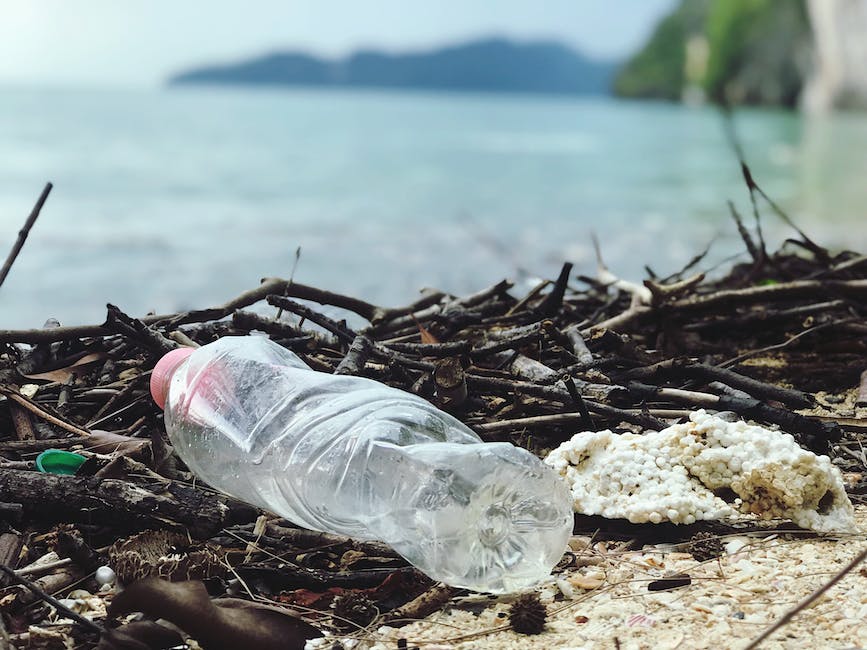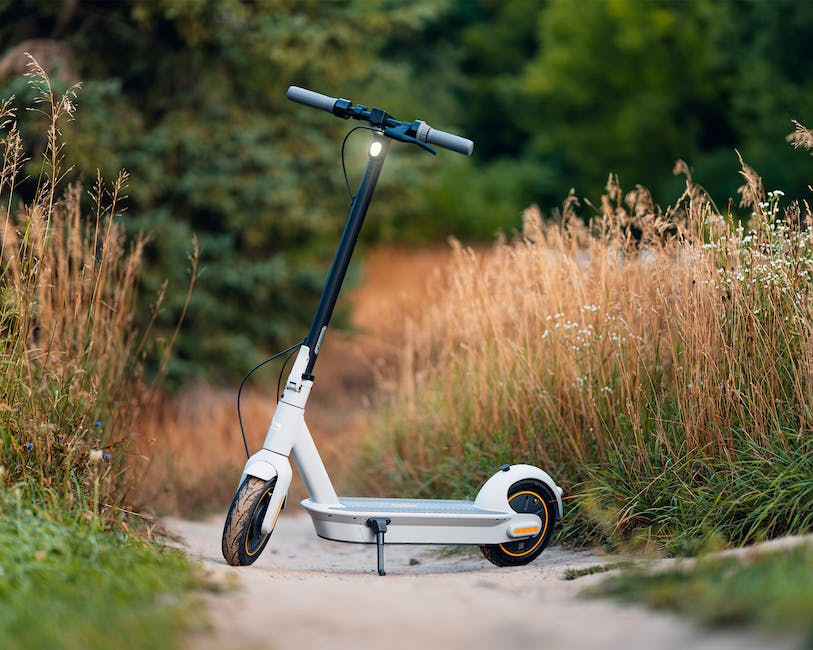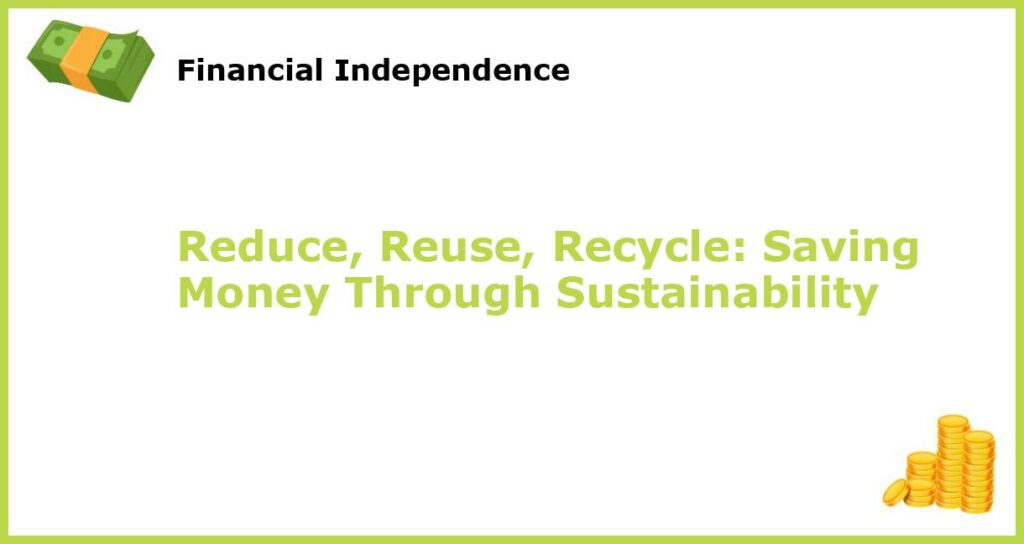Reducing our environmental impact has become increasingly urgent in recent years. Plastic waste, energy consumption, fast fashion, unsustainable transportation, and compostable materials are just some of the key areas where individuals and communities can make a difference. Not only are these measures good for the planet, but they can also save us money in the long run. Here are ten ways we can reduce our impact and our expenses by prioritizing sustainable practices.
Impact of Plastic Waste

Over the last two decades, the global rate of plastic production has tripled, with single-use plastics such as water bottles, straws, and packaging taking up a significant portion of that increase. While these plastics are convenient, they also produce excessive waste, which harms both the environment and our wallets. The manufacturing and disposal of plastic products require considerable resources, and the cost of such wastefulness falls on taxpayers.
Ways to reduce plastic waste include switching to reusable alternatives such as metal water bottles, cloth bags, and metal straws. Investing money in reusable containers and bags can save money in the long term- not just in terms of the cost of plastic but in reduced healthcare expenses and environmental damage too.
Energy-Saving Tips

Reducing energy consumption means reducing your electricity bills while doing your part to conserve energy. Some of the most effective ways of achieving this include turning off lights when leaving a room, using LED light bulbs, and unplugging devices that are not in use.
Another way to save energy is by setting the thermostat down or up by a few degrees, depending on the season. Not only can this help keep your energy bill in check, but it can also make your home more comfortable, and reducing your energy footprint can help offset the larger systemic issues that contribute to climate change.
Impact of Fast Fashion

The cheap and quick production of clothing, known as fast fashion, has a harmful environmental impact. The production of clothes requires vast amounts of water, energy, and other resources. Additionally, cheap clothes are often of poor quality, leading to faster wear and tear and ultimately more waste. By investing in higher quality, durable clothing that lasts longer, we can reduce the environmental impact of fast fashion while saving money over-time in reduced need to repair, replace, or dispose of clothing.
When it comes to clothing, it may take more effort or involve more significant upfront costs. However, doing so can pay off in the long-run, as you can rely on a wardrobe of high-quality, durable pieces that don’t need frequent updates, saving time and money that went into their initial production.
Eco-Friendly Transportation

Choosing sustainable modes of transportation is important for the environment and our wallets too. Walking, biking or using public transportation instead of driving our cars can save money not only in gas and vehicle maintenance but also in reduced healthcare costs and pollution. Walking or biking, in particular, can improve our health and quality of life, reducing the need for other costly healthcare interventions.
In addition to being cost-effective, walking or biking also allows you to enjoy the environment and connect with your community. Who knows, you may find your morning commute to be even more refreshing, peaceful, and enjoyable than the previous robotic auto trips.
The Case for Composting

Composting is a simple way to create nutrient-rich soil for gardening while reducing food waste. This process reduces food waste, cuts down on the cost of regularly removing such waste, and eliminates the need for artificial fertilizers.
Composting can be an easy and cost-effective solution for reducing waste while also helping our plants grow. Composting is also a significant way to mitigate methane produced in landfills which is a significant contributor to greenhouse gas emissions. Additionally, it allows us to get creative in finding new uses for our food waste, developing and improving the idea of a circular economy.
Recycling: More Than Just Bottles and Cans

Many cities now recycle far more than just bottles and cans. Textiles, electronics, and furniture can now recycle easily too, cutting down on the number of items that end up in landfills. By embracing recycling, we can also save money by foregoing buying new while ensuring that we do not add further to existing waste on the planet.
Recycling is an effective way to reduce waste while also protecting the environment. Cities are offering more recycling options than ever before, and we should take advantage of these programs to reduce our impact on the environment, save money, and cut down on wastefulness.
Sustainable Eating

Eating sustainably means being conscious of the environmental impact of our food choices. Choosing locally-sourced, organic, or eating vegetarian or vegan meals reduces the carbon footprint of our diets and can be more cost-effective due to the reduced cost of meat, but also in terms of reducing the longer-term environmental health costs of meat production. Additionally, plants are a great source of nutrients that improve our health and help our communities to maintain local food interdependence.
Choosing to be mindful of what and where you eat can make a difference in the long run both financially and environmentally. It is not only good for our world and bodies, but it is also good for supporting local economies, strengthening community through a shared sense of values, and reducing environmental hazards like air and water pollution.
The Power of Repurposing
Repurposing items that we no longer need can be a creative and cost-effective solution to waste. Recycling or donating old clothes, furniture, or appliances allow their useful lifespan to continue instead of being thrown away. By finding new uses for old items, we can reduce the amount of waste that our society produces, while at the same time, earning some extra cash, saving on taxes and promoting community goodwill.
Repurposing old items is an excellent way to reduce waste and save money. By seeing items not as trash, but as a treasure trove of alternate uses, we create a more thoughtful economy and one that values resourcefulness and creativity over consumption.
Green Home Improvement
Green home improvements, such as installing energy-efficient windows, LED lighting fixtures, and low-water faucets, can help reduce our energy bills while also helping the environment. Additionally, switching to natural cleaning products rather than chemicals, further reduces environmental hazards and toxins in our homes, all while keeping more money in our pockets.
Green home improvements are an excellent way to save money in the long run, while making our homes a healthier place to live. It is a wise investment for preserving our homes, keeping our family and the planet healthy by using less electricity, fewer resources and less hazardous chemical cleaners, capitalizing instead on natural light and resources.
Sustainable Consumerism
Supporting sustainable consumerism means choosing products that prioritize responsible and honest practices over convenience or cost, giving us the power to help build a better economy. By supporting ethical, locally produced and community-engaged brands, we can ensure that both people and the environment are treated with dignity and respect, making a world that values not just the bottom line, but the health of our planet, people and our communities.
The more conscious we are of our consumer habits, the more we can support sustainable, ethical business practices. By valuing both our purchases and the environmental impact of our spending, we create a new economy that promotes good practice, respects personal choices and promotes global health.







